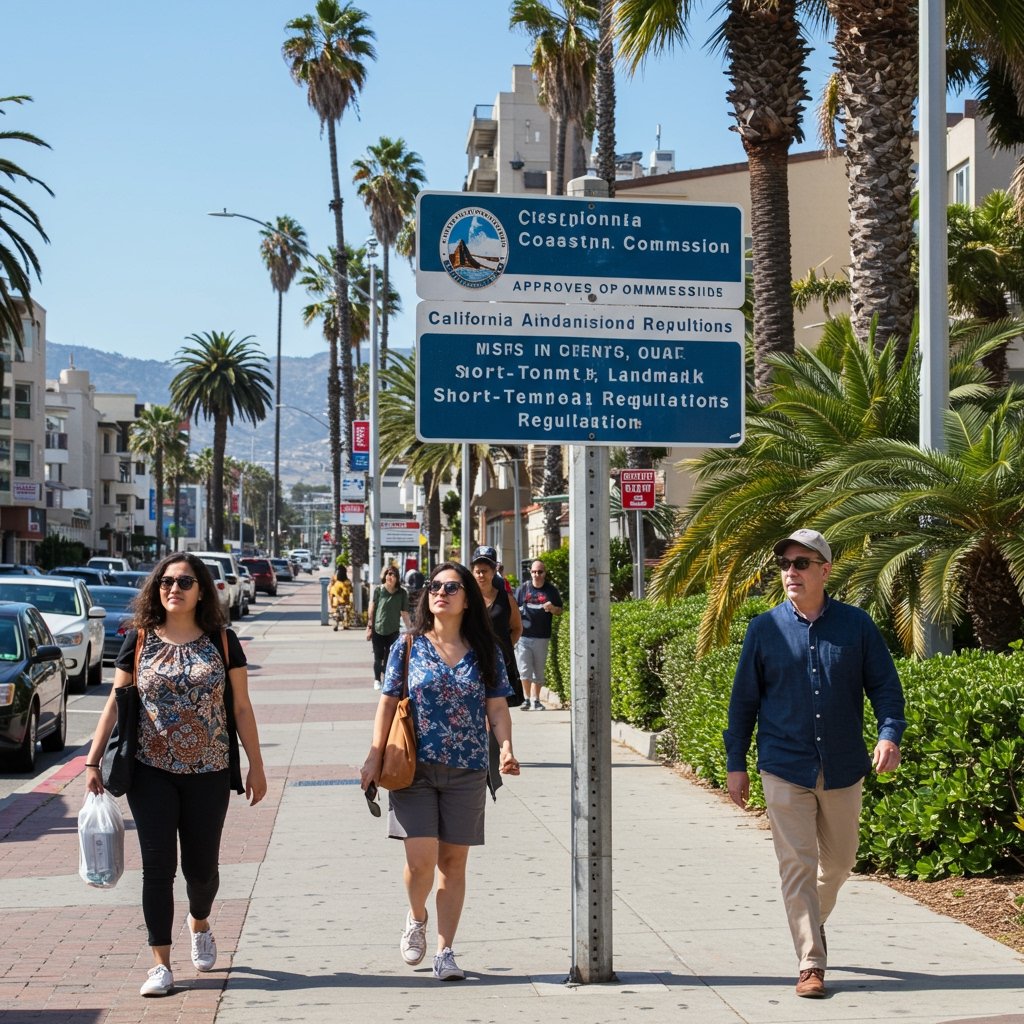Coastal Commission Enacts Sweeping Short-Term Rental Restrictions
In a pivotal decision poised to reshape the landscape of visitor accommodations along California’s iconic coastline, the California Coastal Commission voted decisively on February 10, 2025, to implement stringent new regulations governing short-term rentals (STRs) within the state’s protected coastal zone. The 9-3 vote followed months of public debate, stakeholder input, and environmental review, ultimately reflecting the Commission’s escalating concerns over the impact of STR proliferation on the region’s critical housing affordability crisis and the preservation of essential community character.
The newly adopted rules represent a significant departure from previous, more localized approaches to STR oversight. Historically, jurisdiction over STRs has largely resided with individual cities and counties, resulting in a patchwork of regulations that varied widely from highly restrictive to virtually non-existent. The Commission’s action asserts a more centralized authority over STRs operating within its purview – the coastal zone – citing its mandate under the Coastal Act to protect coastal resources and public access, which it argued were being undermined by the unchecked growth of transient accommodations replacing permanent residences.
Key Provisions of the New Regulations
The core of the new regulatory framework rests upon several key pillars designed to bring STR operations into closer alignment with the Commission’s policy objectives. Foremost among these is a new requirement for all STR operators within the coastal zone to obtain specific permits directly from the California Coastal Commission. This state-level permitting process is intended to provide the Commission with direct oversight over STR activities and ensure compliance with the new rules.
In addition to the permit requirement, the regulations introduce a cap on the maximum number of rental nights permitted per year for STR properties located in certain designated areas within the coastal zone. While the specific areas and the exact number of nights capped will be detailed in forthcoming implementation guidelines, the intent is clearly to limit the frequency of transient occupancy, particularly in neighborhoods deemed most vulnerable to residential displacement or excessive tourist impacts.
Perhaps the most groundbreaking, and certainly the most debated, provision is a mandate requiring STR operators to set aside 50% of their gross rental income into a newly established fund. This fund is explicitly designated for the purpose of promoting and supporting affordable housing initiatives within the state of California. The fund is slated to be administered by the state, directing a significant portion of STR generated revenue towards mitigating the very housing affordability issues that the Commission cited as a primary driver for the new rules.
Rationale Behind the Commission’s Decision
The 9-3 vote reflects a majority consensus among commissioners that the existing regulatory environment for STRs was inadequate to address pressing coastal challenges. Commissioners supporting the measure frequently highlighted the dwindling supply of long-term rental properties and affordable homes available to residents, particularly low- and moderate-income families, essential workers, and individuals dependent on coastal economies. They argued that the conversion of residential units into de facto hotel rooms reduces housing stock, drives up rental costs, and exacerbates the state’s housing crisis, making it increasingly difficult for communities to retain their local workforce and character.
The concept of community character displacement was another central theme in the Commission’s rationale. Supporters of the new rules expressed concerns that the prevalence of STRs transforms quiet residential neighborhoods into transient zones, leading to issues such as noise complaints, parking congestion, and a loss of neighborhood cohesion as long-term residents are replaced by a rotating cast of visitors. The regulations, they contend, are necessary to preserve the residential nature of coastal communities and ensure that the coastline remains accessible and livable for Californians of all income levels.
Opposition and Concerns
The Commission’s decision has not been met without significant opposition. Prominent among the dissenting voices are the California Lodging Association and numerous individual property owners who operate or rely upon short-term rentals for income. These opponents argue strenuously that the new regulations, particularly the 50% income set-aside and the strict permitting and night cap rules, could have severe negative consequences.
The California Lodging Association has voiced concerns that the rules could decimate tourism revenue along the Pacific coastline. They argue that STRs cater to a specific market segment, often offering unique accommodations or locations not provided by traditional hotels. Limiting their operation, they contend, could deter visitors, reduce tourist spending, and negatively impact businesses that rely on the visitor economy, from restaurants and shops to local tour operators.
Individual property owners, many of whom are small business operators or rely on STR income to afford their coastal properties, have raised alarms about the potential infringement upon their property rights. They argue that the regulations are overly burdensome, financially prohibitive, and represent an excessive intrusion into how they manage their private property. The requirement to surrender 50% of rental income, in particular, is seen by many as an unfair and potentially confiscatory measure that undermines their ability to maintain their properties or earn a livelihood.
Opponents also questioned the efficacy and fairness of a statewide, centralized regulatory approach, arguing that local governments are better equipped to understand and regulate the specific nuances of their individual communities and housing markets. They predict legal challenges to the Commission’s authority and the specifics of the regulations.
Path Forward
The implementation of these new rules is expected to trigger complex administrative processes and potential legal challenges. The Coastal Commission, in conjunction with the state entities responsible for the affordable housing fund, will now need to develop detailed procedures for permit applications, compliance monitoring, enforcement, and the administration of the significant funds anticipated to be generated. Meanwhile, the lodging industry and property owner groups are likely to explore avenues for challenging the regulations through advocacy, legislative efforts, and potentially litigation. The coming months will reveal the practical impacts of this landmark decision on coastal communities, the tourism industry, and the ongoing struggle for housing affordability in California.



















